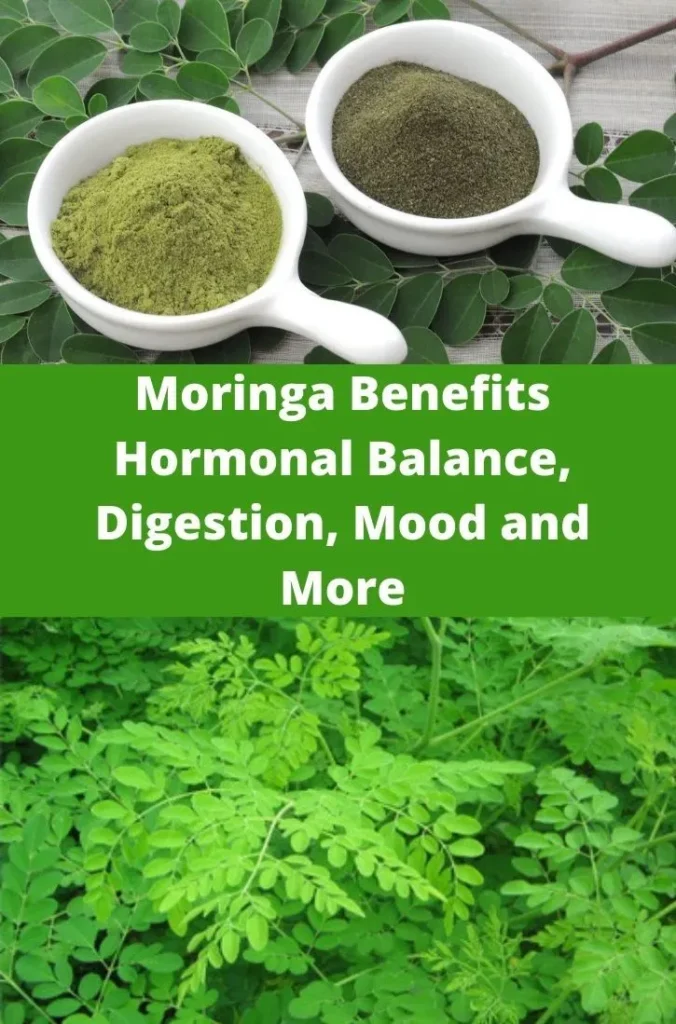As you seek natural remedies to support your health and well-being, you may have encountered moringa, a remarkable plant gaining attention for its potential to balance hormones and slow the aging process. Known by over 100 names worldwide, moringa oleifera is a nutrient-dense tropical species native to the Himalayas, India, and Africa. This versatile plant contains more than 90 protective compounds and has been used in traditional medicine for millennia. In this article, you’ll discover the science-backed benefits of moringa, its nutritional profile, and how it may help address various health concerns, from inflammation to chronic diseases. Prepare to explore the “miracle plant” that could revolutionize your approach to natural health.
Moringa: The “Miracle Plant” That Balances Hormones and Slows Aging
Hormone-Balancing Properties
Moringa, often hailed as a “miracle plant,” has gained significant attention for its potential to balance hormones naturally. This remarkable tree contains an array of compounds that may help regulate your endocrine system. Rich in antioxidants and anti-inflammatory agents, moringa can support your body’s hormone production and metabolism. Its high content of vitamins and minerals, particularly vitamin C and zinc, play crucial roles in maintaining hormonal equilibrium.
Anti-Aging Benefits
The anti-aging properties of moringa are equally impressive. As you age, your body becomes more susceptible to oxidative stress and inflammation. Moringa’s potent antioxidants, including quercetin and chlorogenic acid, can help combat these effects. By neutralizing free radicals, these compounds may slow down cellular aging processes, potentially reducing the appearance of fine lines and wrinkles.
Nutrient Density and Overall Health
Moringa’s reputation as a superfood is well-deserved. Its leaves are packed with essential nutrients that can support your overall health and longevity. You’ll find that moringa contains:
- More vitamin C than oranges
- More potassium than bananas
- More vitamin A than carrots
- More calcium than milk
This nutrient density can help address potential deficiencies in your diet, supporting various bodily functions and potentially slowing the aging process.
Incorporating Moringa into Your Routine
You can easily add moringa to your daily regimen. Consider incorporating moringa powder into smoothies, teas, or soups. Alternatively, moringa supplements are widely available in capsule form. However, it’s crucial to consult with a healthcare professional before starting any new supplement regimen, especially if you have pre-existing health conditions or are taking medications.
How Moringa Helps Improve Digestive Health
Moringa, often called the “miracle plant,” offers numerous benefits for your digestive system. This nutrient-dense superfood can help alleviate various gastrointestinal issues and promote overall gut health. Here’s how moringa supports your digestive well-being:
Fiber-Rich for Improved Digestion
Moringa leaves are an excellent source of dietary fiber, which is crucial for maintaining a healthy digestive system. When you consume moringa, you’re providing your body with both soluble and insoluble fiber. This combination helps regulate bowel movements, prevents constipation, and promotes the growth of beneficial gut bacteria.
Anti-Inflammatory Properties
The anti-inflammatory compounds found in moringa, such as isothiocyanates and flavonoids, can help soothe your digestive tract. These properties may provide relief from conditions like gastritis, ulcerative colitis, and other inflammatory bowel diseases. By reducing inflammation, moringa supports the healing of your gut lining and improves nutrient absorption.
Natural Digestive Aid
Moringa contains natural enzymes that aid in the breakdown of proteins, fats, and carbohydrates. This can enhance your body’s ability to digest food more efficiently, reducing discomfort and bloating after meals. Additionally, moringa’s high chlorophyll content may help detoxify your digestive system, promoting better overall gut health.
Prebiotic Benefits
The fiber in moringa acts as a prebiotic, nourishing the beneficial bacteria in your gut microbiome. A healthy gut flora is essential for proper digestion, immune function, and even mental health. By incorporating moringa into your diet, you’re supporting the growth of these beneficial microorganisms, which can lead to improved digestive health and overall well-being.
By incorporating moringa into your daily routine, you can harness its digestive benefits and support your gastrointestinal health naturally. Whether consumed as a powder, tea, or supplement, this versatile plant offers a holistic approach to maintaining a healthy digestive system.
Moringa Balances Blood Sugar Levels and Helps Fight Diabetes
Moringa’s potential to regulate blood sugar and combat diabetes has garnered significant attention in recent years. This remarkable plant offers a natural approach to managing glucose levels, making it a valuable ally for those at risk of or living with diabetes.
Regulating Blood Glucose
Research suggests that moringa can help stabilize blood sugar levels, potentially preventing dangerous spikes and crashes. The plant’s leaves contain compounds that may slow the absorption of sugar in the bloodstream, helping to maintain more consistent glucose levels throughout the day. This effect is particularly beneficial for individuals with type 2 diabetes or those at risk of developing the condition.
Improving Insulin Sensitivity
Studies indicate that moringa may enhance insulin sensitivity, allowing your body to use insulin more effectively. This improved response to insulin can lead to better blood sugar control and reduced risk of insulin resistance, a key factor in the development of type 2 diabetes.
Antioxidant Properties
Moringa’s rich antioxidant content plays a crucial role in its anti-diabetic effects. These compounds help protect pancreatic cells from damage, potentially preserving their ability to produce insulin. Additionally, antioxidants combat inflammation, which is often associated with diabetes and its complications.
Supporting Overall Metabolic Health
Beyond its direct impact on blood sugar, moringa supports overall metabolic health. Its high nutrient density can help address nutritional deficiencies often seen in diabetic patients. Moreover, moringa’s ability to promote weight management indirectly contributes to better blood sugar control, as maintaining a healthy weight is crucial for diabetes prevention and management.
While moringa shows promise as a natural aid in diabetes management, it’s essential to consult with your healthcare provider before incorporating it into your regimen. Moringa should complement, not replace, conventional diabetes treatments and a healthy lifestyle. With proper guidance, this “miracle plant” may become a valuable tool in your efforts to balance blood sugar and fight diabetes.
Moringa Nourishes the Skin Inside and Out
Moringa’s remarkable benefits extend beyond internal health, offering a holistic approach to skincare that nourishes your complexion from the inside out. This versatile plant’s nutrient-rich profile makes it an excellent addition to both your diet and skincare routine, promoting a radiant, youthful appearance.
Internal Nourishment for Skin Health
When you consume moringa, you’re providing your body with a potent blend of antioxidants, vitamins, and minerals that support skin health at a cellular level. The high vitamin C content in moringa leaves helps boost collagen production, essential for maintaining skin elasticity and reducing the appearance of fine lines and wrinkles. Additionally, the plant’s abundance of vitamin A promotes cell turnover, resulting in a smoother, more even skin tone.
Moringa’s anti-inflammatory properties can also help calm skin irritations and reduce redness, potentially benefiting those with conditions like acne or eczema. By incorporating moringa into your diet through supplements or as a nutritious ingredient in meals, you’re providing your skin with the nutrients it needs to maintain a healthy, vibrant appearance.
Topical Applications for Skin Rejuvenation
Moringa oil, extracted from the plant’s seeds, is a powerhouse ingredient for topical skincare. Rich in oleic acid and antioxidants, this lightweight oil penetrates deeply into the skin, providing intense hydration without clogging pores. When applied regularly, moringa oil can help:
- Reduce the appearance of fine lines and wrinkles
- Improve skin elasticity and firmness
- Protect against environmental stressors and free radical damage
- Soothe and calm irritated skin
You can incorporate moringa oil into your skincare routine by using it as a moisturizer, adding a few drops to your favorite lotion, or applying it as a nourishing overnight treatment. Its non-greasy texture makes it suitable for all skin types, including oily and acne-prone skin.
By harnessing the power of moringa both internally and externally, you can provide your skin with comprehensive nourishment, promoting a healthier, more radiant complexion from the inside out.
FAQ: Everything You Need to Know About Moringa and Hormone Balance
What is the connection between moringa and hormone balance?
Moringa oleifera, often called the “miracle tree,” has gained attention for its potential to support hormonal health. This nutrient-dense plant contains compounds that may help regulate various hormones in your body. Its high antioxidant content and anti-inflammatory properties can contribute to overall endocrine system function, potentially aiding in hormone balance.
How does moringa affect specific hormones?
Moringa may influence several key hormones:
- Cortisol: The plant’s adaptogenic properties could help regulate cortisol levels, potentially reducing stress-related hormonal imbalances.
- Thyroid hormones: Moringa’s iodine content may support thyroid function, which is crucial for metabolism and energy regulation.
- Estrogen and progesterone: Some studies suggest moringa might help balance these sex hormones, potentially alleviating symptoms of menopause or PMS.
Are there any side effects or precautions to consider?
While moringa is generally considered safe, it’s essential to be aware of potential interactions and contraindications. Consult your healthcare provider before adding moringa to your regimen, especially if you’re pregnant, nursing, or taking medications. Some individuals may experience mild digestive discomfort when first introducing moringa into their diet.
How can you incorporate moringa into your routine for hormone balance?
You can consume moringa in various forms:
- Powder: Add to smoothies, soups, or baked goods
- Tea: Steep dried moringa leaves for a nutrient-rich beverage
- Capsules: For a convenient, standardized dose
Start with small amounts and gradually increase to assess your body’s response. Remember, while moringa may support hormone balance, it’s not a substitute for medical treatment. Always work with a healthcare professional to address hormonal concerns.
Conclusion
In conclusion, moringa’s remarkable nutritional profile and wide-ranging health benefits make it a powerful natural remedy worth incorporating into your wellness routine. From balancing hormones to combating inflammation and slowing the aging process, this “miracle plant” offers a holistic approach to supporting your body’s vital functions. As research continues to unveil moringa’s potential, you have the opportunity to harness its healing properties through various forms – leaves, seeds, and oil. By adding this nutrient-dense superfood to your diet, you can take a significant step towards optimizing your health and vitality. Consider exploring moringa’s diverse applications and experience firsthand why this ancient remedy has stood the test of time in promoting overall wellbeing.


